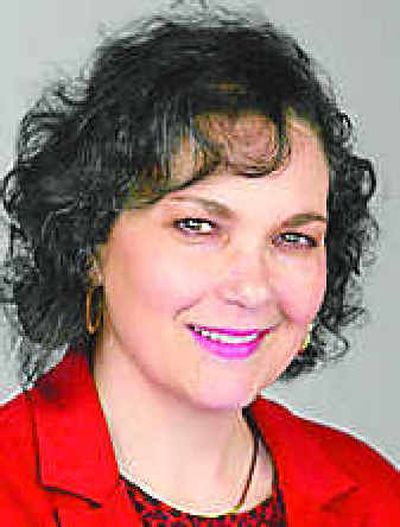Cancer, AIDS aren’t barriers to public life

When President Grover Cleveland developed cancer of the mouth in 1893, his secret surgery was performed aboard a yacht. When newspaper reporters got wind of it, Cleveland’s staff embarked on a disinformation campaign. No, they insisted, the president did not have a malignant tumor removed. He just had some dental work done.
Cancer was such a stigma then for everyone that keeping it a secret would seem not only justified, but mandatory.
And so here we are in election season 2004. What a difference a century makes. Christine Gregoire, running for Washington state governor, leads off a campaign ad with these two words: Breast cancer. She’s had it. She’s better. She uses her personal story to launch into her take on the state’s health care challenges.
Then there’s Laurie Dolan, running for a Washington state Senate seat. She was diagnosed with bone marrow cancer right after her unsuccessful bid for the same 6th District seat in 2002. She underwent chemo and a stem cell transplant and she now feels so good she’s trying for elected office once again.
Then there’s Judith Billings. She’s running for state superintendent of public instruction. She doesn’t have cancer. But she does have AIDS. She feels great. She has her doctor’s blessing, and she mentions AIDS as nonchalantly as people mention a slightly annoying relative who has moved into their home.
And finally, there’s Jim West, mayor of Spokane. He’s not running for anything. But he won the mayor’s seat while in treatment for colon cancer in 2003. He just had liver surgery for problems related to his colon cancer. He hopes to be back to work by the end of this week.
Whoa. Don’t tell me this isn’t a cultural revolution going on right under our noses. Whatever happens with the candidates in the Nov. 2 election, and whatever happens with Jim West’s health during the rest of his term, these folks deserve some credit for destigmatizing both cancer and AIDS.
Their openness about their physical health advances our society’s dialogue about the worth of people among us who are ill, or have been ill in the past. Susan Keyes, former head of the Providence Center for Faith and Healing, applauds the trend, too. When people speak frankly about any serious or chronic illness “we share our true selves with one another and it is real communication,” Keyes said.
Where did all this candor come from?
Credit, in part, the mind-body-spirit movement. This movement, unfortunately, got hijacked early by folks who made people feel guilty for getting horrible stuff, such as cancer. It’s part mystery, part science why some people have cancer and AIDS while others do not. But the mind-body-spirit movement did demonstrate that attitude goes a long way in the healing process.
And if a person has cancer or AIDS or any serious illness, and feels well enough to run for office or serve in the public sector, then they should go for it. They probably know better than some just what they are choosing to do with their lives. Any brush with mortality can produce amazing clarity of purpose.
The mind-body-spirit movement allowed us the freedom, finally, to discuss what it means to be sick and what it means to heal. It made us understand that we shouldn’t tether the strength of the human spirit to the diagnosis of the body.
Credit, too, the courage of public figures who revealed their diagnoses when many others still hid theirs. Betty Ford’s 1974 announcement of breast cancer seemed radical at the time, as did tennis great Arthur Ashe’s 1992 revelation that he had AIDS.
Their courage led directly to the reality of this election season. We have cancer survivors running for office. A person with AIDS running for office. A mayor who just got out of the hospital after cancer surgery.
And it’s not a huge deal to anyone, it seems. That’s a revolution that Grover Cleveland, who lived more than a decade after his secret cancer surgery, could not have predicted in 100 years.